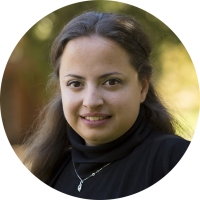From Data to Knowledge: Integrating Clinical and Molecular Data for Predictive Medicine

Abstract
Alzheimer’s disease (AD) remains one of the most pressing medical challenges, with limited therapeutic options and heterogeneous disease trajectories complicating diagnosis and treatment. Recent advances in computational biology and artificial intelligence (AI) together with availability of rich molecular and clinical data, offer new opportunities to address these challenges by integrating molecular, clinical, and systems-level insights. In our recent studies, we developed a cell-type-directed, network-correcting approach to identify and prioritize rational drug combinations for AD, enabling targeted modulation of disease-relevant pathways across distinct cellular contexts (Li et al., Cell 2025). Complementarily, by leveraging large-scale electronic medical records (EMRs) integrated with biological knowledge networks, we demonstrated the ability to predict disease onset and progression while uncovering mechanistic insights into AD heterogeneity (Tang et al., Nature Aging 2024). Together, these complementary approaches illustrate the power of combining real-world clinical data, knowledge networks, and systems pharmacology to advance precision medicine for AD. This work highlights a paradigm shift toward AI-enabled, data-driven strategies that bridge molecular discovery and clinical application, ultimately informing novel therapeutic interventions and improving patient care.
Speaker Bio
Marina is currently a Professor and the Interim Director at the Bakar Computational Health Sciences Institute at UCSF. Prior to that she has worked as a Senior Research Scientist at Pfizer where she focused on developing Precision Medicine strategies in drug discovery. She completed her PhD in Biomedical Informatics at Stanford University. Dr. Sirota’s research experience in translational bioinformatics spans nearly 20 years during which she has co-authored over 170 scientific publications. Her research interests lie in developing computational integrative methods and applying these approaches in the context of disease diagnostics and therapeutics with a special focus on women’s health. The Sirota laboratory is funded by NIA, NLM, NIAMS, Pfizer, March of Dimes, and the Burroughs Wellcome Fund. As a young leader in the field, she has been awarded the AMIA Young Investigator Award in 2017. She leads the UCSF March of Dimes Prematurity Research Center at UCSF as well as co-directs ENACT, a center to study precision medicine for endometriosis. Dr. Sirota also is the founding director of the AI4ALL program at UCSF, with the goal of introducing high school girls to applications of AI and machine learning in biomedicine.